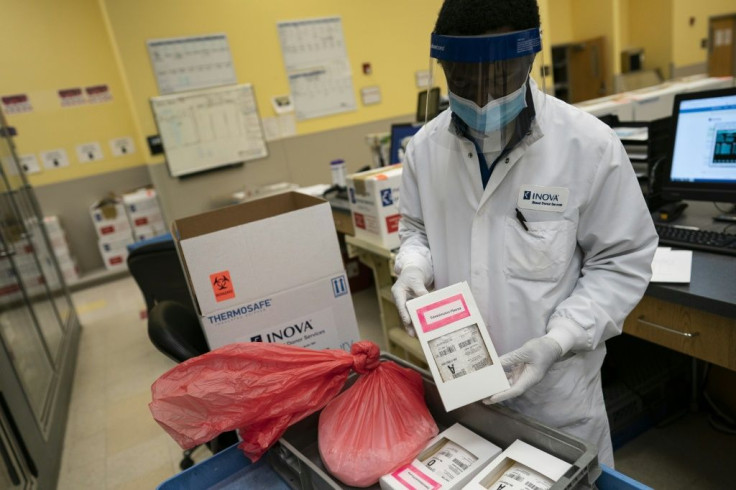Chinese Hackers Making If Difficult To Deliver COVID-19 Treatment Options, US Claims

KEY POINTS
- Coronavirus pandemic has created conditions for nation-state hacking
- There is a rise in cyberattacks and intelligence-gathering
- China's hackers are spying and endangering COVID-19 research
Beijing-backed hackers are increasing their cyberattacks in the context of the global pandemic. A joint statement by the Department of Homeland Security's Cybersecurity and Infrastructure Security Agency (CISA) and the Federal Bureau of Investigation (FBI) accuses China of endangering novel coronavirus research.
According to Wired, since the unfolding of the COVID-19 crisis, nation-state hacking is on the rise. As the world’s researchers are working to find a vaccine and best treatment options in order to contain the pandemic, hackers’ intelligence gathering has targeted the World Health Organization (WHO) and other public health institutions. They are increasingly targeting American health research that focuses on finding COVID-19 cures and a working vaccine.
In particular, the race to develop a COVID-19 vaccine is very important for the entire global community. While many nations have claimed that they are ready to internationally collaborate throughout the process, there are governments willing to turn to cyber-spying to fill the gaps.
According to CISA/FBI’s statement that came out Wednesday (May 13), Beijing-backed hackers have attempted to steal public health data and intellectual property related to COVID-19 testing, treatments, and vaccines. Their actions make difficult the delivery of efficient, effective, and secure coronavirus treatment options.
Digital spying is easier to perform on working from home employees that often are safeguarded by less-strict security measures to protect their work. But China’s hackers are not just spying out, they also damage or disrupt COVID-19 research, violating any norms surrounding espionage.
While international norms of espionage are not exactly a set of individual rules but rather a collective project, there's still an unspoken consensus that distinguishes between aggression and acceptable acts. During the COVID-19 pandemic, nation-backed hacking against targets developing lifesaving treatments or vaccines could be interpreted as crossing the line. Such aggressive actions could lead to some sort of retaliation.
The United States has struggled for years to deter Chinese cyber-spying. A 2015 agreement between the two nations seemed to reduce the targeting of the American private sector. However, in recent months China’s hacking attacks have increased again. The U.S. condemned those acts, implementing sanctions, and indicting Chinese hackers.
The pandemic complicated even further the already problematic relationship between the U.S. and China. President Trump and some other U.S. officials have publicly blamed China for the way they managed the emergence of COVID-19.
© Copyright IBTimes 2025. All rights reserved.



















